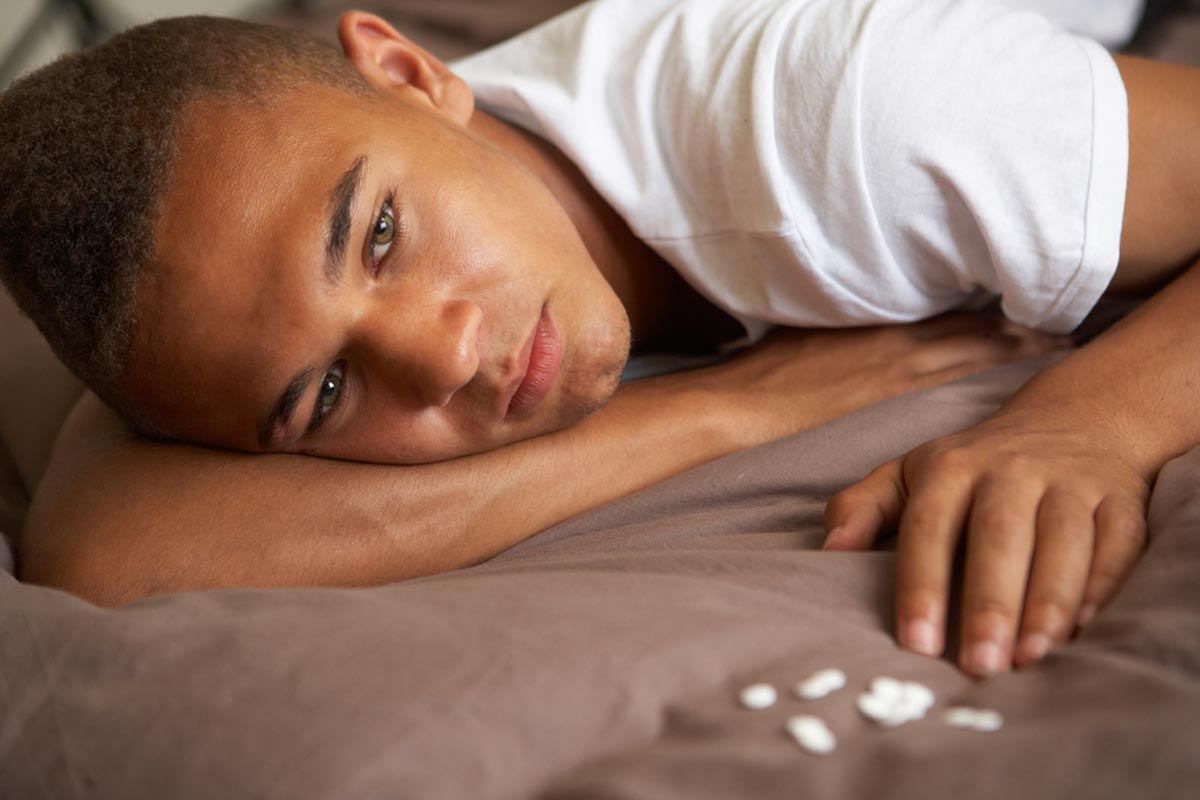 Over 2 million Americans are addicted to an opioid drug, ranging from heroin to prescription medication. The opioid crisis has slowed down since its peak, but opioid addictions still ravage the lives of millions of Americans every year. And, many of those people aren’t criminals, they have houses, they have jobs, families, and outwardly good lives. So, what drives normal people to addiction?
Over 2 million Americans are addicted to an opioid drug, ranging from heroin to prescription medication. The opioid crisis has slowed down since its peak, but opioid addictions still ravage the lives of millions of Americans every year. And, many of those people aren’t criminals, they have houses, they have jobs, families, and outwardly good lives. So, what drives normal people to addiction?
Understanding what causes normal people to end up addicted to opioids can be the first step in getting help. Reasons for relying on, abusing, and becoming addicted to opioids vary. However, those complex reasons are often what need to be treated in addiction treatment.
Prescription Medication
Millions of people are addicted to prescription opioids or pain pills. These drugs are normally prescribed following a surgery, after an accident, or to treat other chronic pain. Today, most people given these prescriptions are handed an intensive Risk Evaluation and Management Schedule (REMS) to prevent addiction. However, that hasn’t always been the case. Additionally, not all REMS work, because they rely on medical staff having time and access to the patient.
Prescription medication causes addiction in several ways. The first and most prevalent is simply exposure. Exposure is the most common factor in addiction. And, if someone goes home after a surgery with 30 days of pain pills and then uses those opioids for 30 days, they will, at the least, likely have a chemical dependence. One review showed that 94% of surgeons prescribe pain pills for at least 30 days post-operation, even if the patient only really needs them for a few days. The idea is to reduce the burden on already over-stretched staff, so the patient doesn’t have to come back for more if pain doesn’t go away.
Globally, the impact of this is huge. An estimated 10-18% of all post-surgery patients develop an opioid dependency. In the U.S., that’s 7 million people a year. Of course, dependency isn’t addition, it just means chemical dependence and withdrawal on quitting the drug. But, withdrawal also greatly increases chances of addiction.
That’s important considering opioids can result in tolerance in just a few days. Following tolerance, chemical dependence and then seeking behavior can occur in just a few weeks of regular use. That’s especially true if the patient responds to tolerance, or the reduced effect of the drug, by taking more to dull pain. This exacerbates the tolerance effect, leading to escalating usage patterns and accelerating the process of dependence and addiction.
Prescription opioids are a major cause of addiction because they’re often prescribed for the long-term, with little management possible. In fact, 35% of hip replacement patients are still taking opioids 6 months after the surgery.
Self-Medication
Self-medication is the second most common cause of opioid abuse and addiction in the U.S. Here, someone uses a drug, even one they were prescribed legitimately or have from an old prescription, to de-stress or to treat pain. For example, you sprain your ankle and you still have opioids from a spouses surgery in the bathroom, so you take one. The pain doesn’t go away over the course of a week so you keep taking them. Then, you don’t stop. Reasons can be diverse. People self-medicate for pain, stress, anxiety, loneliness, and mental health disorders can result in self-medication.
Often, you eventually begin to take medication so you don’t have pain, stress, or anxiety. For example, you take a pill “just in case”, to prevent the undesirable emotion or experience from happening. You’re no longer medicating when you feel something, you’re just medication. Many people also move into a period of medicating to avoid withdrawal symptoms, sometimes without even realizing they are withdrawal symptoms. Most opioids have heavy, flu-like withdrawal symptoms that start with aches and pains, which quickly prompt many to take more medication.
Be Brave. Get Help.
We know what it’s like to have a new chance at life. We want you to feel that, too.
Call us: 1 954-688-5806
Mental Health Disorders
 Millions of Americans struggle with mental health disorders and many are not diagnosed or properly treated. Even if diagnosed and treated, mental health disorders including anxiety, depression, bipolar disorder, greatly increase vulnerability to substance use disorder. Combined with the fact that persons with mental health disorders are exposed to addictive medications more frequently, they are more likely to develop unhealthy relationships with substances.
Millions of Americans struggle with mental health disorders and many are not diagnosed or properly treated. Even if diagnosed and treated, mental health disorders including anxiety, depression, bipolar disorder, greatly increase vulnerability to substance use disorder. Combined with the fact that persons with mental health disorders are exposed to addictive medications more frequently, they are more likely to develop unhealthy relationships with substances.
For example, individuals with mental illnesses are more likely to abuse sugar, caffeine, and nicotine. That extends to more dangerous drugs including opioids. This relates to how the brain processes and manages substances, to how the reward circuit functions, and to level of satisfaction in daily life. Mental health disorders often decrease impulse control, increase pleasure seeking, and decrease risk-taking inhibitions because the individual has less to lose.
Other Vulnerability Factors
Factors like stress, a past history of trauma, PTSD, and a family history of substance abuse all greatly increase the risk of someone developing a substance use disorder. For example, the Adverse Childhood Events (ACE) study maps traumatic childhood events (like parental divorce, loss of a parent, child abuse) to an increased likelihood of addiction. Individuals also often turn to drugs or alcohol as a coping mechanism following a traumatic event, such as a breakup, the loss of a parent or child, or a car accident. If someone has opioids around or their family has a history of opioid use, opioids are an easy choice. And, if friends or family are using, factors like peer pressure, low self-esteem, desire to fit in, and pleasure seeking can all lead someone to engage in recreational drug use. The more drugs are available in your environment, the more likely you are to use and to become addicted. This means that even if someone’s life is otherwise going very well, with no past history of trauma or stress, having a family member or partner using can result in them using as well.
People abuse opioids for diverse and complicated reasons. Those often relate to deeply personal behavioral and psychological reasons, which are further complicated by psychological dependence, chemical dependence, and seeking behavior. This complicated addiction process means that treatment must often be personalized to the individual. Psychologists have to understand why a person turned to substances to give them better coping mechanisms and new life skills. That often means using tools like behavioral therapy (CBT, DBT) to assess underlying causes, build new behaviors, and help people to build life skills.
Modern addiction treatment means using personalized approaches to fix the cause of addiction rather than just addiction. While it doesn’t matter how a person came to addiction in that it is not their fault, they didn’t choose addiction, and they need help, it does matter in that it affects treatment.
If you or a loved one is struggling with opioid abuse, there is help. Therapy, counseling, and group therapy can help you to build the skills to overcome addiction and create a new, happy life for yourself without drugs.
Get you questions about opioid treatment programs answered from one of our experienced advisors now.

 Matthew Beck B.A, M.A, LMFT
Matthew Beck B.A, M.A, LMFT 


